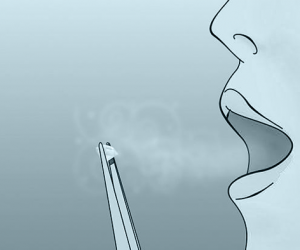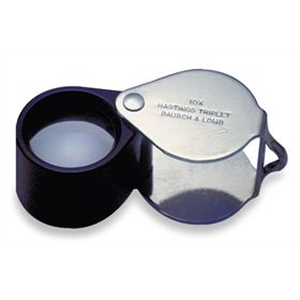5 Tips: How To Tell If a Diamond is Real
When you shop with Lauren B, you will always know exactly what you are purchasing whether it be a real GIA graded diamond, a high quality moissanite, or a colorful gemstone. It’s also good to have some quick go-to ways to test the authenticity of your center stone. This is why we’re sharing 5 tips how to tell if a diamond is real.
1. The Fog Test
Diamonds are made completely of carbon, an organic material. They conduct heat so if you blow on a diamond the foggy surface will dissipate immediately. If you blow on a stone and the foggy surface sticks around, then the stone isn’t a real diamond. Make sure you do this test with a clean stone to avoid confusion.

2. The Water Test
This test only works for a loose stone. The first step is to get a glass of water 3/4 of the way full, any temperature. Drop the stone in and if it floats, the stone is definitely not a real diamond.
3. Magnification Part 1

This is one of the best ways to check your diamond. Focus on a star facet on the crown of the stone underneath magnification (a jeweler’s loupe is most comfortable). If you see 2 of each facet line, then you’ve just identified doubling which means it’s synthetic.
4. Magnification Part 2
Keep the loupe handy and view the stone now focusing on what you see inside instead of on top. Real diamonds mostly always show some number of inclusions so if you see absolutely nothing- it’s likely the stone isn’t real. Less than 2% of diamonds are flawless and internally flawless so it’s about 98% likely your stone will show some sort of inclusions.
5. Black Light
Around 35% of diamonds have some degree of fluorescence so there’s a chance that the stone will emit a blue light when placed under a black light. If it emits a blue light it’s likely real and if not then check with a couple other tests before assuming it’s real.
If you have any questions on how to tell if a diamond is real, it’s always best to speak to a trained professional. These easy at home tests are not as accurate as the equipment that a gemologist uses so if you’re still unsure then don’t hesitate to contact a pro! You’re welcome to reach out to a diamond expert at Lauren B to find out more about diamond verification.
